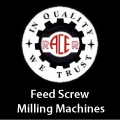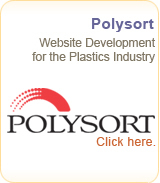
Home >> Resources/Information >> Extrusion, Bag
Company's expertise no longer just in bags
Company's expertise no longer just in bags
Ampac branches out into all forms of packaging
By Mike Boyer
Enquirer staff writer
Tom Geyer, vice president of manufacturing for Ampac Plastics, in front of a nine-layer extrusion machine. Company officials say it's likely you'll encounter Ampac products half a dozen times a day.
The Enquirer/Meggan Booker
Zoom
AMPAC PLASTICS LLC
Headquarters: Springdale
CEO: John Q. Baumann
No. of employees: 800; 250 locally
Revenues: $200 million
Major products: Retail bags; also food, medical and pharmaceuticals packaging.
Major business challenge: The rising price of natural gas has increased the cost of the resins the company relies on for manufacturing by 200 percent.
Strategy: Use plants in China, which can tap into lower global prices for resins.
SPRINGDALE - It's not just a question of paper or plastic any more for bag-maker Ampac Plastics LLC.
Over the last few years, through a combination of acquisitions and internal growth, the privately held Springdale company on Tricon Road, north of Tri-County Mall, has made a concerted effort to diversify its retail-bag business into more sophisticated food, medical and pharmaceuticals packaging.
Since the company emerged from a Chapter 11 bankruptcy reorganization in 1997, it has grown from a single Springdale plant employing 200 to a global company with nine plants employing more than 800.
The 215,000-square-foot plant here, which employs 250, produces about 35 million pounds of plastic film annually for its own packaging and as roll stock for others, said Tom Geyer, vice president of manufacturing.
Ampac's revenues have risen from $20 million from exclusively plastic shopping bags eight years ago to more than $200 million from not only retail paper and plastic bags but also from foil and laminated food and drink packaging, single-dose medical packaging and plastic cash-handling bags.
"If you're in a mall or a supermarket, a hospital, a fast-food restaurant or getting a carry-out from a casual dining restaurant, you're likely to find an Ampac package," said John Q. Baumann, president and CEO. "In the normal course of a day, you probably run in to our packaging a half dozen to a dozen times."
Retail bags still represent about 60 percent of the company's sales, but that percentage is shrinking as its food, consumer and medical and pharmaceuticals packaging business grows faster.
While the overall retail-bag market is growing about 3 percent a year, Baumann said segments of the food packaging are growing from 10 percent to 15 percent, particularly in the market for single-serving products that can be microwaved in the bag - known as "retort" packaging.
Likewise, the medical and pharmaceuticals markets are fueling double-digit packaging growth as hospitals and drug-makers are breaking up multi-dose drug packs into single-dose plastic and foil packages that can be tracked more easily with a bar code.
Baumann is a one-time chief operating officer at Duro Manufacturing, the large plastic and paper bag maker in Ludlow. He said after investment firms Key Principal Partners and Pouchine Cook Capital Management acquired Ampac with senior management from Cincinnati's Fisher Investment Group in 2001, they decided to look for accelerated growth built around its expertise.
"Our base is manufacturing,'' said Baumann. " What ties everything together for us is that base in manufacturing. It's extrusion, printing and converting into a finished pouch or roll stock. So whether we're in the retail marketplace or food or medical, the core is manufacturing."
Strategic acquisitions
In less than a year, Ampac has made three acquisitions, though it would not disclose purchase prices:
Last July, it acquired the controlling interest in Kapak Corp., a Minneapolis maker of flexible pouches, plastic bag spouts and other custom shapes that also has rotogravure printing capability and employs about 100.
In October, it acquired the Spanish Fork, Utah, paper bag-making plant of Longview Fibre Co., giving it better access to the West Coast retail market.
In January, it acquired Flexicon Inc., a Cary, Ill.-based maker of custom-engineered, flexible packaging employing 60.
Three years ago, Ampac opened a small plant in Nanjing, China, which exports bags to customers in the United States and elsewhere. It might seem expensive to ship plastics bags from China, but Baumann said the Chinese plant is able to tap into lower global prices for resins, which more than offsets the freight and logistics costs.
"The real challenge in our business is that the cost of resins have increased over 200 percent over the last two years. They are based on natural gas prices. Seventy percent of our resins are derived from natural gas in the United States,'' he said.
European inroads
This year, Ampac also is stepping up its marketing activities in Europe.
"Our idea now is to take our products made in the U.S. and China and develop a sales organization in Europe,'' he said.
Later this year, Ampac will add another plastic film extrusion line at the Springdale plant as part of a partnership with Dow Chemical Co.
The line will produce a new, wider version of Dow's Saran plastic for retort packaging. (In retort packaging, the pouch is filled with the food product, sealed and then heated to 125 degrees Centigrade. Unlike zipper pouches, foods packaged in retort packaging can be maintained outside of the refrigerator for extended periods of time.)
The Saran product has the same moisture and chemical barriers as foil-based retort packaging while allowing consumers to see the food inside.
Baumann won't forecast future revenues for Ampac but says the company will purse acquisitions and internal expansion.
"We expect to continue double-digit revenue growth," he said.
E-mail mboyer@enquirer.com




